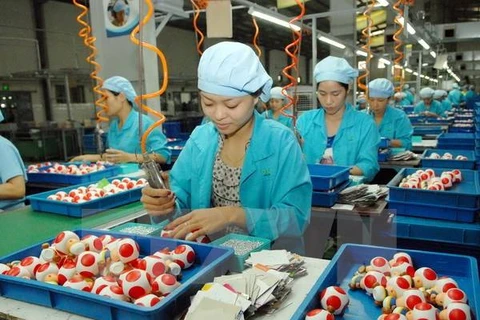HCM City (VNA) - Vietnam has challenges to tackle if it wants to achieve economic targets and deeply integrate into the world's economy in the context of new trade agreements.
Speaking at a seminar held in HCM City on March 3, Tran Dinh Thien, Director of the Vietnam Institute of Economics, told participants that the economy bounced back last year, with GDP growth of 6.2 percent and low inflation of 1.7 percent.
"But it is the foreign-invested sector that contributed largely to the economic restoration," he said, adding that the domestic sector showed insignificant development as agriculture and SMEs faced difficulties, while macroeconomic policies had not helped the domestic sector.
"The FDI sector represented 70 percent of export value, which means the economy depends on this sector, which is a problem," he said.
Last year, 71,400 local businesses closed, an increase of 22.4 percent compared to 2014. He said it would be worrying if the rate continued to rise. The first two months of the year saw an increase of new businesses, but their size has become increasingly smaller, he said, adding that the country lacks major private businesses as a pillar for the economy.
Thien suggested that the government should view 2016 as a national business year and focus on addressing difficulties and attracting businesses to invest in the agricultural sector.
Tran Du Lich, a member of the National Assembly Economic Committee, said that tapping the opportunity would be a challenge for the economy.
"Opportunities and challenges for the economy in general and businesses in particular always intertwine, and if they don't know how to tap the opportunities, they will turn into challenges," Lich said.
"Joining the WTO, FTA, AEC and TPP was a way to develop the economy in the direction of trade liberalisation, but it does not mean the State's macro governing role and support to businesses is minor," he said, adding that the State's role and responsibility will become even more significant as the State's economic administration will have to reform to suit the situation.-VNA























